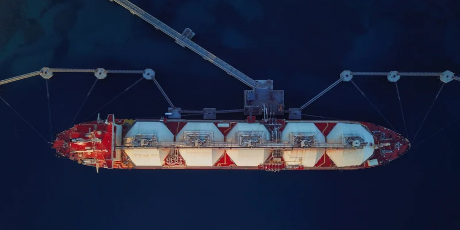How should Ireland go about protecting its energy supplies? 11 Oct 2022

Analysis: as the energy crisis has exposed the State's dependence on imported oil and gas, action must be taken on other options - Dr. Paul Deane, Senior Research Fellow, Energy Policy and Modelling Group, MaREI Centre/ERI
Ireland currently spends over €1 million every hour importing fossil fuels like oil and gas into the State. The evolving energy crisis and this week's attack on two undersea gas pipelines from Russia to Europe, has brought the topic of energy security, especially the security of Ireland’s natural gas supply, into the public debate on energy.
Natural gas is an important fuel in Ireland, heating 700,000 homes and businesses and generating over half of our electricity. Over the next decade the implementation of the Government’s climate action plan to reduce greenhouse gas pollution from fossil fuels will mean we will use less gas on aggregate over the year, about 40% less in 2030, but there will be individual days when we will use more, especially on days when heating and power demand is high and renewable generation from wind and solar are low.
It is these daily extremes in weather, rather than annual averages, that have the most impact on security of supply, especially if they last for several days or weeks. Today, Ireland is supplied by a combination of domestic natural gas production from the Corrib field, which meets 30% of our gas needs, and the remainder is from imports via two undersea pipelines from Scotland. While Ireland does not physically import gas from Russia, we do see the consequences of Russian actions in our heating and electricity bills which are passed through global markets.
To understand gas security, it is important to distinguish between a physical interruption, whereby an importing pipeline is cut off, and a price risk, whereby gas is available but becomes expensive. Given our reliance on gas for energy, a physical disruption in supply from the UK to Ireland for a long period would be catastrophic, whereas a price disruption, which we are experiencing now, results in extremely high prices of gas rather than physical shortages.
Ireland's secure supply of natural gas has been the focus of a government study this month, which examined a range of mitigation options and scenarios that could impact the supply of gas into Ireland, including a complete physical disruption over a long period of time. It looked at the possible role of a State-owned floating Liquified Natural Gas (LNG) terminal that would allow Ireland to import gas via specialist ships rather than relying on physical pipelines, as well as the possibility of developing gas storage in Ireland which could also act as a strategic storage in the event of a supply shock.
The study showed that options to increase Ireland’s energy security via importing liquified natural gas or gas storage would significantly reduce the impact on the economy if there was a physical disruption of gas into Ireland, but they will not reduce the prices households pay for energy which will remain market-driven. The study also showed that the option of a state-owned floating LNG terminal would be the only evaluated option to fully protect against a long-term interruption to the economy from the UK.
This finding reflects what’s happening in other European member states like Germany and Netherlands which are developing floating LNG facilities to increase their security of gas supply, however it will be a politically challenging option for the Green party's Eamon Ryan who has spoken out against LNG in Ireland. This opposition is linked to the likelihood that a terminal in Ireland would result in the importation of 'fracked gas’.
Fracking is the process of natural gas extraction by drilling kilometres into the ground and using special fluids to fracture the rocks to release oil and gas trapped inside and it is mainly associated with the USA. It has allowed the United States to become one of the largest exporters of gas globally but comes at the cost of significantly more environmental damage and climate pollution associated with its extraction.
Not allowing fracked gas would mean banning gas imports from the USA and this would require Ireland to look at other suppliers, which will be more expensive. The report also suggests Ireland could look at on-land storage of natural gas, but this option wasn’t fully evaluated. Whatever option is chosen, action must be taken and given the volatility of energy supply globally, it is time for pragmatism and not procrastination.
Ireland should play to its strengths as a country with large renewable potential and seek to harness this resource, but we must be realistic and acknowledge it will take time. As we transition away from fossil fuels over the next 15 to 20 years, we must not let long-term optimism blind us to the short-term vulnerabilities of our energy supply and action must be taken on options such as LNG or gas storage.
These will be our insurance policy as we prepare for the transition which is taking place against the backdrop of a volatile and uncertain energy future in Europe, and like most insurance policies, we don’t want it until we need it.